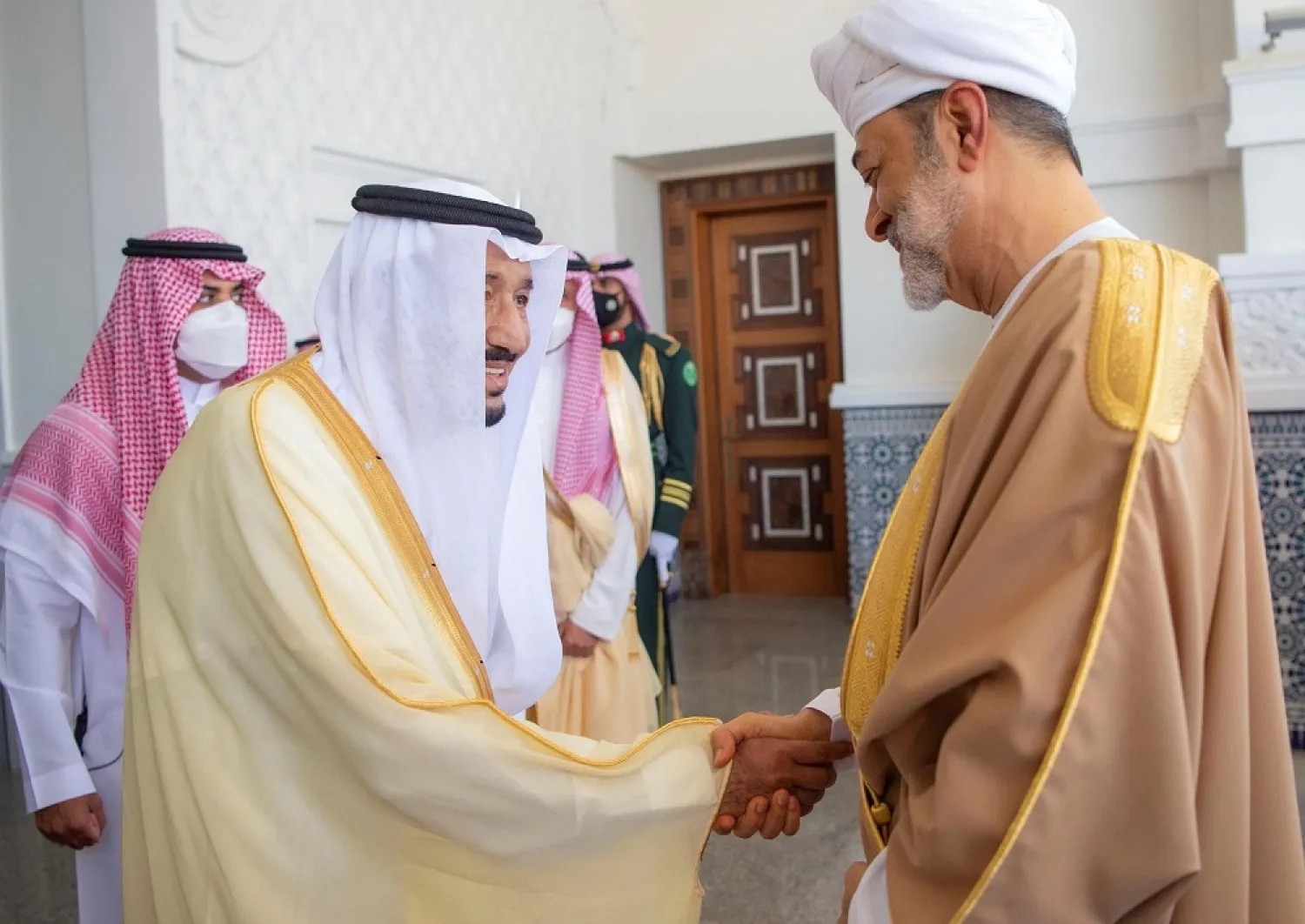Saudi Arabia and Oman inaugurated on Sunday a joint coordination council during a visit by Sultan Haitham bin Tariq to the Kingdom.
Custodian of the Two Holy Mosques King Salman bin Abdulaziz and Sultan Haitham oversaw the signing of a memorandum of understanding to establish the council. The MoU was signed by Saudi Foreign Minister Prince Faisal bin Farhan and his Omani counterpart Badr Albusaidi.
King Salman and Sultan Haitham held a summit in Neom that was attended by Crown Prince Mohammed bin Salman, Deputy Prime Minister and Minister of Defense.
The talks focused on the historic and deep-rooted bilateral relations between the two brotherly countries. They also covered aspects of cooperation and ways to bolster and develop them. The two rulers exchanged the highest of orders in recognition of their roles.
Sultan Haitham had arrived in Neom earlier on Sunday at the invitation of King Salman. It was his first foreign visit since ascending the throne last year. He was received at the airport by Crown Prince Mohammed.
A 21-gun salute welcomed his arrival and King Salman threw a luncheon banquet in his honor.
The Omani news agency (ONA) reported that Sultan Haitham underscored the keenness of Saudi Arabia, under the leadership of King Salman, “in forging ahead assuredly towards a bright future,” highlighting the close historic brotherly relations between their countries.
He added that cooperation in all fields was ongoing and that will in turn pave the way for greater bilateral cooperation to meet the aspirations of the Saudi and Omani people.
Crown Prince Mohammed later escorted Sultan Haitham on a tour of the NEOM Center for Knowledge Enrichment that offers a presentation on the latest developments related to the Neom project. Sultan Haitham was also briefed on other major projects in the Kingdom, such as AlUla, Qiddiya, Amaala and the Red Sea.
Meanwhile, Saudi FM Prince Faisal hailed the depth of historic relations that bind Saudi Arabia and Oman and the advanced levels of bilateral coordination they have reached in all fields.
In remarks to the Saudi Press Agency (SPA), he added that Sultan Haitham’s visit reflects the strength of the fraternal relations between the Saudi and Omani leaderships and their common stance over the importance of bolstering security and stability in the region to serve their development goals.
Saudi Interior Minister Prince Abdulaziz bin Saud bin Nayef said the visit bolsters cooperation between Saudi Arabia and Oman and achieves security cohesion between them.
“The visit underscores the harmony and strong relationship between the two countries and embodies the aspirations of their leaderships to bolster the partnership on all levels and in all fields,” he added.
Saudi State Minister for Foreign Affairs Adel al-Jubeir said the visit reflects the depth of diplomatic and fraternal relations between the Kingdom and Sultanate and desire to further consolidate them.









